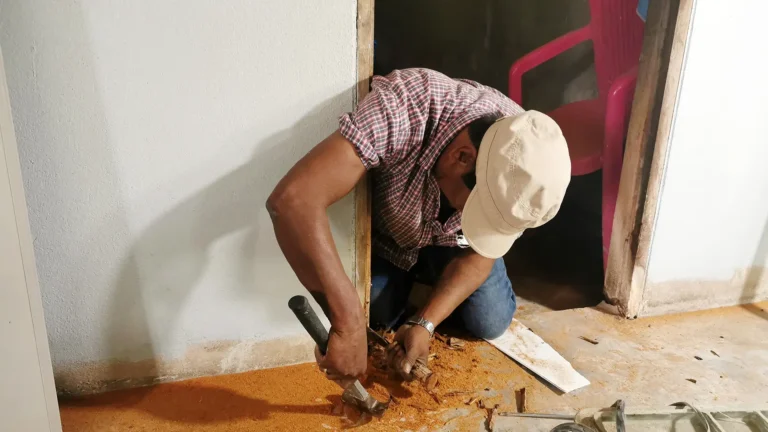Trending: Here are some Business Statistics and Trends to know

Every modern construction project begins long before the first concrete is poured or steel beams are set into place. The real groundwork, literally and figuratively, starts with excavation. Far more than just digging, excavation is a precise and technical process that shapes the very foundation of buildings, infrastructure, and landscapes.
From ensuring structural stability to integrating sustainable practices, excavation plays a central role in construction success. Understanding its impact highlights why this stage remains indispensable in the construction industry.
Preparing the Site for Development
Before construction can begin, preparing the site is one of the most important stages of the project. This process involves clearing vegetation, removing debris, and ensuring the ground is properly graded to support future structures. Surveyors and engineers conduct detailed assessments to identify soil conditions, drainage needs, and any hidden obstacles that could cause problems later.
In some cases, innovative techniques such as a floating excavation system are used in the middle of challenging terrains, allowing crews to manage waterlogged soils or unstable ground without disrupting the surrounding environment. By carefully preparing the site, builders create a safe and stable foundation for long-term success.
Establishing Strong and Stable Foundations
The most important role of excavation lies in establishing the foundation of a building. Excavation creates the trenches, pits, and graded surfaces where concrete footings and base structures will be placed.
By digging to the correct depth and ensuring compacted soil layers, excavation specialists help prevent future settlement or shifting. A poorly excavated site can lead to cracks, water infiltration, or even building collapse.
Today’s construction industry relies on advanced excavation machinery and laser-guided systems to ensure millimeter-level accuracy, reinforcing the long-term durability of everything from skyscrapers to residential homes.
Supporting Infrastructure and Utilities
Excavation is not limited to creating building foundations. It shapes the hidden framework that modern cities depend on every day.
Trenches carved during excavation allow for the installation of underground utilities such as water pipes, sewage systems, electrical cables, and internet lines, all of which are important for daily life. Proper excavation ensures these systems are placed at the correct depths, securely positioned, and protected from future damage caused by soil movement or external pressure.
In large-scale developments, utility excavation must be precisely coordinated to prevent overlap or interference between systems while ensuring accessibility for future repairs. Without this critical groundwork, the efficiency, safety, and long-term reliability of urban services would be severely compromised.
Addressing Safety and Risk Management
Construction projects involve inherent risks, and excavation is no exception. Deep trenches, unstable soil, and hidden underground hazards can all pose dangers if not managed properly.
Modern excavation practices place a strong emphasis on safety, with strict protocols for trench support, soil stabilization, and worker protection. By applying advanced risk management strategies, excavation crews reduce the chance of cave-ins, flooding, or accidents.
This focus on safety protects workers and ensures that projects remain on schedule and within budget. In many ways, effective excavation is as much about minimizing risk as it is about shaping the land.
Incorporating Environmental Considerations
The construction industry must balance progress with environmental responsibility, and excavation plays a key role in that balance.
Sustainable excavation practices focus on minimizing soil erosion, protecting natural waterways, and reducing dust and noise pollution. In some projects, excavated materials are reused on-site for landscaping or road base layers, reducing waste and transportation needs.
Careful excavation protects archaeological sites and preserves sensitive ecosystems. By prioritizing environmentally conscious techniques, modern construction projects comply with regulations and demonstrate a commitment to long-term environmental stewardship.
Enabling Innovation in Modern Construction
Excavation has evolved alongside technology, and its role in modern construction continues to expand with innovations.
Advanced equipment like GPS-guided excavators, 3D modeling software, and automated machinery now allows excavation to be faster, more precise, and more cost-effective. Digital simulations can predict soil behavior and help engineers design excavation plans with pinpoint accuracy.
These innovations improve efficiency and open new possibilities for construction in challenging environments, from urban high-rises to remote infrastructure projects. By embracing technology, excavation transforms from a basic task into a sophisticated science that shapes the future of construction.
Excavation is the critical process that ensures safety, stability, and sustainability for everything that follows. From preparing the land and laying strong foundations to integrating modern utilities and advancing technology, excavation shapes the success of every modern build.
As construction methods continue to evolve, excavation remains the bedrock upon which innovation and progress are built. Without it, the modern skylines, roadways, and communities we rely on every day would simply not be possible.


